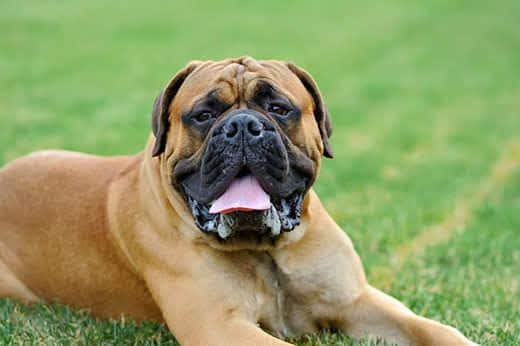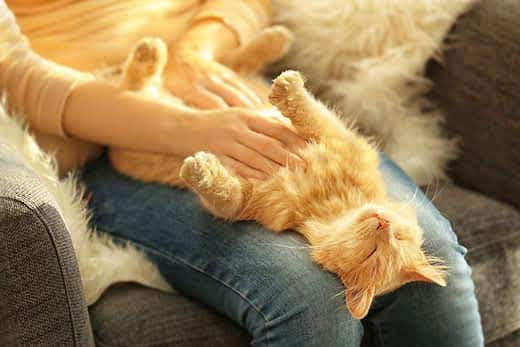
-
Find the right food for your petTake this quiz to see which food may be the best for your furry friend.Find the right food for your petTake this quiz to see which food may be the best for your furry friend.Featured products
 Perfect Weight Small & Mini Adult Dog Food
Perfect Weight Small & Mini Adult Dog FoodHill's Science Plan Adult Small & Mini Dog Food with Turkey is a complete premium pet food for adult small dogs from 1 year old that are prone to weight gain or slightly overweight. This deliciously smooth mousse is formulated to deliver the appropriate amount of energy to support weight maintenance in adult dogs.
Shop Now Perfect Digestion Small & Mini Adult Dog Food
Perfect Digestion Small & Mini Adult Dog FoodHill's Science Plan Perfect Digestion Small & Mini Adult Dog Food with Turkey is a complete premium pet food for small breed adult dogs aged 1–6 years. This deliciously smooth mousse is precisely balanced to deliver the appropriate amount of energy and to support digestive health in adult, small breed dogs.
Shop Now Hypoallergenic Small & Mini Adult Dog Food
Hypoallergenic Small & Mini Adult Dog FoodHILL'S SCIENCE PLAN Hypoallergenic Small&Mini Adult dog food with Salmon is complete pet food for adult small dogs 1–6 years old. It's formulated for dogs with delicate skin and stomach, with limited high quality novel protein sources & no grain.
Shop NowFeatured products Sterilised Mature Adult Cat Food
Sterilised Mature Adult Cat FoodHill's Science Plan Sterilised Cat Mature Adult Cat Food with Chicken is specially formulated with ActivBiome+ Multi-Benefit Technology. It is a precisely balanced nutrition tailored to meet the needs of mature adult sterilised cats, ages 7+, and to promote graceful ageing.
Shop Now Urinary Health Adult Cat Food with Chicken
Urinary Health Adult Cat Food with ChickenHill's Science Plan Urinary Health Adult Cat Food with Chicken supports the health of the whole urinary system. Suitable for sterilised cats.
Shop Now Oral Care Adult Cat Food
Oral Care Adult Cat FoodHill's Science Plan Oral Care Adult Cat Food with Chicken contains clinically proven kibble technology to reduce plaque & tartar build up.
Shop Now -
Dog
- Dog Tips & Articles
-
Health Category
- Weight
- Food & Environmental Sensitivities
- Urinary
- Digestive
- Joint
- Kidney
-
Life Stage
- Puppy Nutrition
- Adult Nutrition
- Senior Nutrition
Cat- Cat Tips & Articles
-
Health Category
- Weight
- Skin & Food Sensitivities
- Urinary
- Digestive
- Kidney
-
Life Stage
- Kitten Nutrition
- Adult Nutrition
Featured articles Virtual Vet Visits: What You Need to Know
Virtual Vet Visits: What You Need to KnowLearn the ins and outs of a televet appointment before you talk to a vet online.
Read More Tips For Mixing Wet And Dry Pet Food
Tips For Mixing Wet And Dry Pet FoodDiscover tips for mixing wet and dry pet food to ensure balanced nutrition and variety for your pet. For comprehensive feeding advice, visit Hill's Pet UK.
Read More Develop your gut instinct | Hill's Pet
Develop your gut instinct | Hill's PetDigestive disorders can affect any part of the digestive system, from the stomach, small intestine and through to the large intestine.
Read More -


Cardiopulmonary resuscitation (commonly known as CPR) is a life-saving form of first aid. Dog CPR and cat CPR can be used to save a pet's life if a dog or cat stops breathing or their heart stops beating. When this frightening occurrence happens, it is known as cardiopulmonary arrest. If this ever happens to your dog or cat, it's vital that you know how to perform CPR. In order to be prepared for this kind of emergency, taking a cat and dog first aid online training class through the Red Cross can help.
A Step-by-Step Guide on Performing Cat and Dog CPR
While pet CPR should be performed by your veterinarian, if you find that you do need to give your cat or dog CPR, follow these steps:
1. Check for Your Pet's Heartbeat
You can check for your pet's heartbeat by placing your hand on the left side of the chest just behind the point of the elbow. You can check to see if a pet is breathing by watching their chest move up and down with each breath. If you do not feel a heartbeat or if you don't see your pet's chest moving up and down, start chest compressions immediately. Keep in mind that chest compressions vary by the size of the pet:

- For cats and small dogs: Place the palm of your dominant hand over the heart and place your other hand over your dominant hand. You will want to do compressions with the heel of your dominant hand covered by your other hand.
- For puppies and kittens: Place your thumb on the top side of the chest, and the other fingers on the bottom side. Then, use your fingers to compress the chest.
- For big dogs or deep-chested dogs: Place your dominant palm over the widest part of the rib cage and place your other hand over your dominant hand.
- For dogs with barrel chests: For bulldogs, rottweilers, mastiffs and Staffordshire terriers, roll the dog onto their back. Place your dominant palm over the widest part of the bottom of the chest (the sternum), and place your other hand over your dominant hand. Make sure your shoulders are right above your hands, and lock your elbows.
2. Start Chest Compressions
Do 30 chest compressions in a row. If you feel yourself becoming fatigued before you reach a count of 30, it is better to have someone else take over performing chest compressions (if possible) to ensure quality chest compressions are being provided. You will need to push hard on larger dogs in order to pump the heart, and you will need to pump fast at a recommended rate of 100 to 120 compressions per minute to circulate enough blood to support life. If you pump to the rhythm of the song "Stayin' Alive" by the Bee Gees, you're doing it right. Compress the chest to at least half of the regular width, and let the chest fully recoil before compressing again.
3. Give a Rescue Breath
Fully extend your pet's neck to open the airway. Then, cover your pet's nose with your mouth, close your pet's mouth with your hand and exhale into your pet's nose until you see the chest rise. Give two rescue breaths.


Tasty Tips
Young pets may need several visits in their first year for vaccinations. Adult pets generally benefit from annual check-ups, while senior or special-needs pets might require more frequent visits.

4. Repeat
Repeat steps one and two, and then check for a heartbeat and breathing. If your pet still isn't breathing or doesn't have a heartbeat, repeat the steps until you get to the veterinary hospital. If your pet starts breathing and you detect a heartbeat, then you've been successful in resuscitating your pet. In the event that this happens, it's important to note that your pet still isn't out of the woods. It's imperative that you have your pet evaluated as soon as possible by a vet because your pet is at risk of going into cardiopulmonary arrest again.
What If CPR Doesn't Work?
Even if you're unable to resuscitate your pet, continue to conduct cat and dog CPR and take your pet to the vet. Most vets are equipped with life-saving emergency equipment like oxygen, injectable medications and other advanced life support systems that may still be able to save your pet. Even if your pet isn't breathing or has no detectable heartbeat when you get to the vet, you will have kept your pet's heart beating and lungs breathing with your CPR. Furthermore, any dog or cat that has suffered cardiopulmonary arrest and undergone CPR needs post-resuscitation care that can only be given by a vet. Usually, these pets will need additional testing to determine what caused cardiopulmonary arrest in the first place, and hospitalisation and extensive monitoring to help them recover.
Being prepared to deliver first aid, including CPR, is an important part of preventing disaster in the life of your dog or cat. While it isn't ideal for a pet parent to perform cat or dog CPR, being prepared for this situation could mean the difference between life and death for your pet.


Dr. Sarah Wooten graduated from UC Davis School of Veterinary Medicine in 2002. A member of the American Society of Veterinary Journalists, Dr. Wooten divides her professional time between small animal practice in Greeley, Colorado, public speaking on associate issues, leadership, and client communication, and writing. She enjoys camping with her family, skiing, SCUBA, and participating in triathlons.
Related products

Hill's Science Plan Adult Small & Mini Dog Food with Turkey is a complete premium pet food for adult small dogs from 1 year old that are prone to weight gain or slightly overweight. This deliciously smooth mousse is formulated to deliver the appropriate amount of energy to support weight maintenance in adult dogs.

HILL'S SCIENCE PLAN Hypoallergenic Small&Mini Adult dog food with Salmon is complete pet food for adult small dogs 1–6 years old. It's formulated for dogs with delicate skin and stomach, with limited high quality novel protein sources & no grain.

Hill's Science Plan Sensitive Stomach & Skin Adult Wet Dog Food with Chicken is a complete premium dog food for adult dogs from 1 year. This savoury tinned loaf is enriched with ingredients that support digestive health & skin care.

Hill's Science Plan Perfect Digestion Small & Mini Adult Dog Food with Turkey is a complete premium pet food for small breed adult dogs aged 1–6 years. This deliciously smooth mousse is precisely balanced to deliver the appropriate amount of energy and to support digestive health in adult, small breed dogs.
Related articles

Discover tips for mixing wet and dry pet food to ensure balanced nutrition and variety for your pet. For comprehensive feeding advice, visit Hill's Pet UK.

Learn the ins and outs of a televet appointment before you talk to a vet online.

Digestive disorders can affect any part of the digestive system, from the stomach, small intestine and through to the large intestine.

Monitoring your pet’s body condition score (BCS) can help you help your pet maintain proper growth and weight for a long, healthy life.

Put your pet on a diet without them knowing
Our low calorie formula helps you control your pet's weight. It's packed with high-quality protein for building lean muscles, and made with purposeful ingredients for a flavourful, nutritious meal. Clinically proven antioxidants, Vitamin C+E, help promote a healthy immune system.
Put your pet on a diet without them knowing
Our low calorie formula helps you control your pet's weight. It's packed with high-quality protein for building lean muscles, and made with purposeful ingredients for a flavourful, nutritious meal. Clinically proven antioxidants, Vitamin C+E, help promote a healthy immune system.

